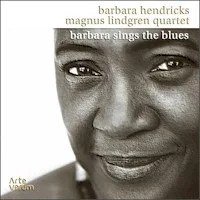Styles: Piano Jazz
Year: 2015
File: MP3@320K/s
Time: 61:14
Size: 140,7 MB
Art: Front
( 7:05) 1. Rain, Rain And Rain
( 6:59) 2. Living Time: Event V
(10:34) 3. Yagibushi
( 6:23) 4. Bemsha Swing
( 3:52) 5. Himawari Musume
( 6:28) 6. Taxi
( 8:20) 7. The Entertainer
( 5:38) 8. Evidence
( 5:51) 9. Insight Foresight
The Spheres : Live In Osaka!!
Year: 2015
File: MP3@320K/s
Time: 61:14
Size: 140,7 MB
Art: Front
( 7:05) 1. Rain, Rain And Rain
( 6:59) 2. Living Time: Event V
(10:34) 3. Yagibushi
( 6:23) 4. Bemsha Swing
( 3:52) 5. Himawari Musume
( 6:28) 6. Taxi
( 8:20) 7. The Entertainer
( 5:38) 8. Evidence
( 5:51) 9. Insight Foresight
Everyone in the world knows who Hiromi is - Japanese pianist Hiromi Uehara was played with Chick Corea in Tokyo when she was 17 and after graduation in Berklee College in Boston (under Ahmad Jamal) she took the world by storm playing high energy technical fusion influenced by Return To Forever legacy. Hiromi is most probably most popular internationally Japanese jazz artist of today. Much less people outside of her homeland Japan know who is Chihiro Yamanaka, and it's a shame. She is Beklee graduated pianist who leads her own bands (usually trios as Hiromi does) from early 00's. Chihiro released her first album in 2001, two years prior to Hiromi, and in 2015 came with her first ever live release (and her 18th album at all). Being celebrity of sort in home country, she is relatively unknown in Western world. During last decade some her albums have been reissued in US and Europe though. The main difference between two is Hiromi is a piano power trio leader,playing technical high energy fusion, oriented first of all on neo jazz-rock fans. She started with playing tuneful contemporary chamber jazz, but it was fusion that made her a true star. Each success has its price trying to continue once reached success Hiromi for some years changes nothing in her music,which with every her new album becomes moreand more repetitive and predictable.
Chihiro Yamanaka played contemporary jazz for years - not polished anemic European chamber jazz,but groovy American one, closer to good pop-jazz.Her roots are all in bop, and there are no album where this influence isn't obvious. During last some years Chihiro turns more and more towards modern post bop, adding all her pop and rock legacy to it as well. The Sphere is are electro-acoustic trio with electric bassist Dana Roth and drummer Karen Teperberg. Chihiro herself plays piano and some analog keyboards, their music varies from pop-ballads to chamber tuneful songs to groovy post bop and fusion with analog keyboards passages. Played live in club in Osaka, all music is playful, shining, tuneful and full of joy.There are no really new things here, but the way how it is played will make you smiling. Nothing is repetitive or boring and that feeling recalls times when jazz was not a demonstration of techniques or ambitions,but the source of fan. http://www.jazzmusicarchives.com/review/the-spheres-live-in-osaka(live)/251925
Personnel: Chihiro Yamanaka - Piano, Keyboards; Dana Roth - Electric Bass; Karen Teperberg - Drums.
Chihiro Yamanaka played contemporary jazz for years - not polished anemic European chamber jazz,but groovy American one, closer to good pop-jazz.Her roots are all in bop, and there are no album where this influence isn't obvious. During last some years Chihiro turns more and more towards modern post bop, adding all her pop and rock legacy to it as well. The Sphere is are electro-acoustic trio with electric bassist Dana Roth and drummer Karen Teperberg. Chihiro herself plays piano and some analog keyboards, their music varies from pop-ballads to chamber tuneful songs to groovy post bop and fusion with analog keyboards passages. Played live in club in Osaka, all music is playful, shining, tuneful and full of joy.There are no really new things here, but the way how it is played will make you smiling. Nothing is repetitive or boring and that feeling recalls times when jazz was not a demonstration of techniques or ambitions,but the source of fan. http://www.jazzmusicarchives.com/review/the-spheres-live-in-osaka(live)/251925
Personnel: Chihiro Yamanaka - Piano, Keyboards; Dana Roth - Electric Bass; Karen Teperberg - Drums.
The Spheres : Live In Osaka!!




















